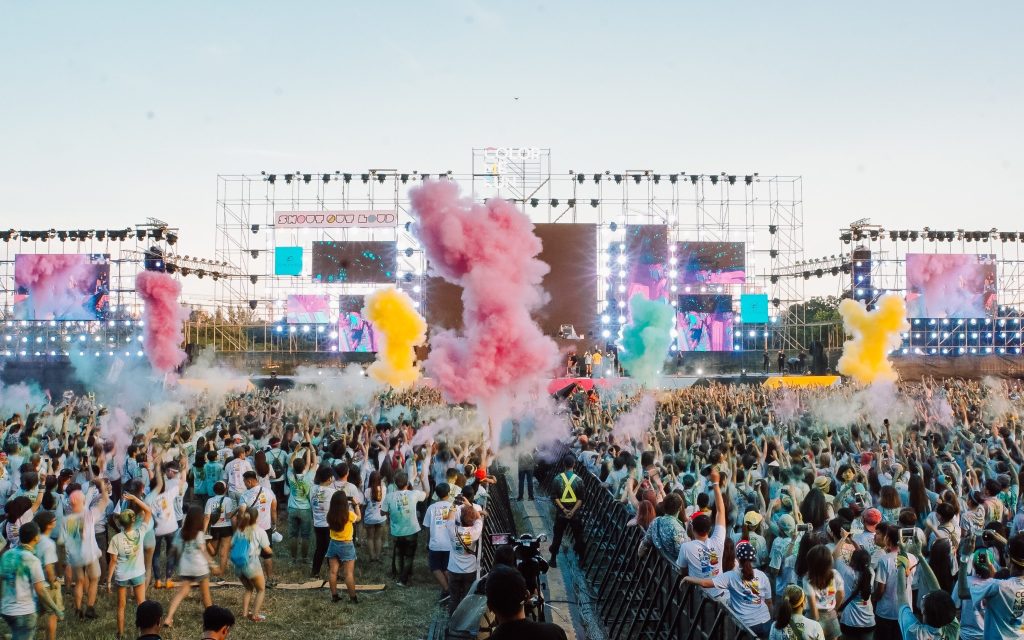The University of New South Wales (UNSW) has recently released a statement cautioning festivals and music events to adopt harm reduction strategies this summer.
Staff shortages and restless youths post-lockdowns are a dangerous mix that can easily lead to catastrophe.
Senior Lecture in Criminology, Faculty of Law and Justice at UNSW, Dr Phillip Wadds, says: ‘There is real concern where you have a group of young people going to their first major events after being contained for a really long time, and then you’ve got everyone else who hasn’t really experienced a full festival season in years.
‘On top of this, the sector has faced major issues relating to staffing – with many experienced staff and managers leaving the industry during the COVID years, taking a whole lot of professional and life experience with them. Post-pandemic, staffing hasn’t returned to anywhere near the number that the sector needs,’ he continues.
Wadds has spent the last decade researching issues of public safety related to Australian nightlife and music festivals, and is concerned that these factors will heighten the risk of harm to young festival-goers this summer season.
Read: Staffing issues signal overdue reform
In previous research prior to COVID, Wadds found that festivals present a period of increased risks, especially in places such as Sydney where there is hyper-regulation of nightlife. Festivals present an opportunity for excess consumption and irrational decisions, a once-in-a-year opportunity to blow off steam.
Dangers such as drug or alcohol intoxication, sexual assault, and injuries and health problems caused by dehydration and surging crowds are at the top of the list.
Wadds adds that there are environmental factors that can lead to this, including ‘the high prevalence of intoxication, poor natural surveillance, low light and large crowds, but also the adversarial nature of policing, which means that people don’t want to report issues’.
Strategies and resources to reduce harm at music festivals
It is not only the responsibility of festival organisers and venue managers to pay attention to potential risks. Everyone should put safety first at these major events to ensure a positive experience for all.
Wadds says: ‘The reality is that we need everyone at a festival event to be part of improving safety and reducing harm – from patrons, staff, security to those working in medical and support roles.’
The Australian Festival Association has put together an interactive Party Safe quiz to educate people about best practices in harm reduction. Included are practical tips on reducing risk after taking MDMA (aka ecstasy), sexual consent under the effects of drugs and alcohol, and what to do if a friend falls unconscious. Poorly informed decisions, such as thinking that you will get in trouble when seeking medical care after taking drugs, can lead to fatal outcomes.
DanceWize NSW is another resource that provides peer-based harm reduction at festivals, including by providing chill-out spaces at festivals, volunteers who are geared with knowledge for 24/7 support, and useful gadgets such as blankets, dry clothes, tea and more.
In 2019, the NSW Government released Guidelines for Music Festival Event Organisers: Music Festival Harm Reduction, which provide detailed and implementable strategies.
There are also a variety of avenues of support for festival organisers, staff and volunteers to assist in adopting harm reduction strategies, as well as checking in with their own mental and physical well-being.
Hey Mates is a social enterprise with a dedicated Live Event Wellbeing Program focusing on festival welfare, which provides social and emotional support for event artists, crew and patrons who may experience anxiety or panic attacks.
Support Act provides a plethora of resources on stress, anxiety, conflict and more, both within and outside the festival context. The organisation’s ‘Top Tips on How to Dance Sober’ is also worth a read, especially against a backdrop of the social pressure to indulge in drugs and alcohol at festivals in order to have fun.





